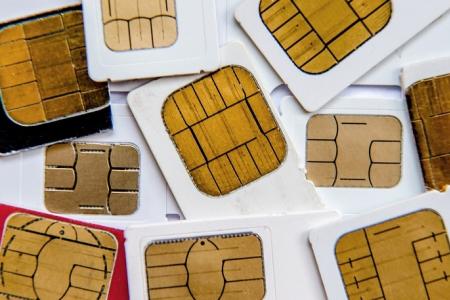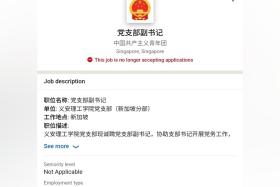New laws punishing misuse of S'pore SIM cards to kick in on Jan 1
Tougher laws to police the use of SIM cards could see subscribers jailed for up to three years if the cards are used in a crime.
The Ministry of Home Affairs (MHA) on Dec 30 said the new laws under the Law Enforcement and Other Matters Act will come into effect on Jan 1, 2025.
Subscribers who give away SIM cards registered in their names must take reasonable steps to find out the identity and location of the recipient of the SIM card or the recipient’s purpose for obtaining it.
Under the new laws, they would be found liable if they have reasonable grounds to believe that the SIM cards would be used to commit or facilitate a crime. Offenders can be jailed for up to three years, fined up to $10,000, or both.
The ministry said criminal syndicates have turned to local SIM cards to get around measures that were introduced in 2022 to block overseas scam calls and SMSes.
The number of local mobile lines involved in scams and other cybercrimes had quadrupled from 2021 to 2023.
MHA said there were difficulties in prosecuting people found to be transferring or possessing local SIM cards without legitimate reason previously. But under the new laws, middlemen and scammers can now face punishment.
It will be an offence for a person to receive, supply or possess unregistered local SIM cards or those that are registered using someone else’s particulars, if he intends to use the cards to commit or facilitate a crime, or has reasonable grounds to believe that they would be used in that manner.
Prosecutors will not have to prove criminal intent or knowledge if the SIM cards are used in a crime, or if 11 or more cards are involved.
First-time offenders can be jailed for up to three years, fined up to $10,000, or both. Repeat offenders can be jailed for up to five years, fined up to $20,000 or both.
Errant retailers who facilitate the fraudulent registration of local SIM cards can also be punished.
Said MHA: “Currently, mobile service providers may be found in breach of their regulatory obligations if they or their appointed retailers facilitate fraudulent registrations.
“The Act introduces criminal offences against errant retailers, to enhance deterrence against such behaviour.”
Mental disorders
From Jan 1, the police will also have more powers to apprehend people with mental disorders who are deemed a safety risk to themselves or others.
Current laws do not allow the police to apprehend such individuals in order to take them to a medical practitioner for treatment, if there is no imminent danger.
The new laws allow officers to apprehend the individual if he is deemed to be reasonably likely to pose a danger to human life or personal safety, and this can be done before any actual harm is caused.
The police can now also legally search, restrain, and use necessary force on such individuals.
MHA said “these powers are needed to protect the safety of the person being apprehended and others around him” as he may turn violent or possess dangerous weapons.
When the Bill was debated in Parliament in April, several MPs raised concerns about how people with mental health conditions would be treated when apprehended. They also questioned how the police would assess when they need to apprehend someone.
Second Minister for Home Affairs Josephine Teo said then that the changes to the law were not meant to be used for the purpose of mental health management, but that they clarified the police’s powers of apprehension, and search and seizure under current laws.
Separately, MHA said several amendments to the Immigration Act, passed in Parliament in September 2023, will come into effect on Dec 31.
Among other things, they make clear that individuals who use the automated clearance processes, under the Immigration and Checkpoints Authority’s New Clearance Concept, may be directed to appear before an immigration officer for immigration clearance after using the automated system.
The Minister for Home Affairs will also be authorised to disclose passenger information to the airport operator, to facilitate the implementation of a new end-to-end biometric-enabled departure journey at Changi Airport.
This is to enhance traveller experience at the airport by reducing the need for passengers to repeatedly present their travel documents at various touchpoints.
Get The New Paper on your phone with the free TNP app. Download from the Apple App Store or Google Play Store now


